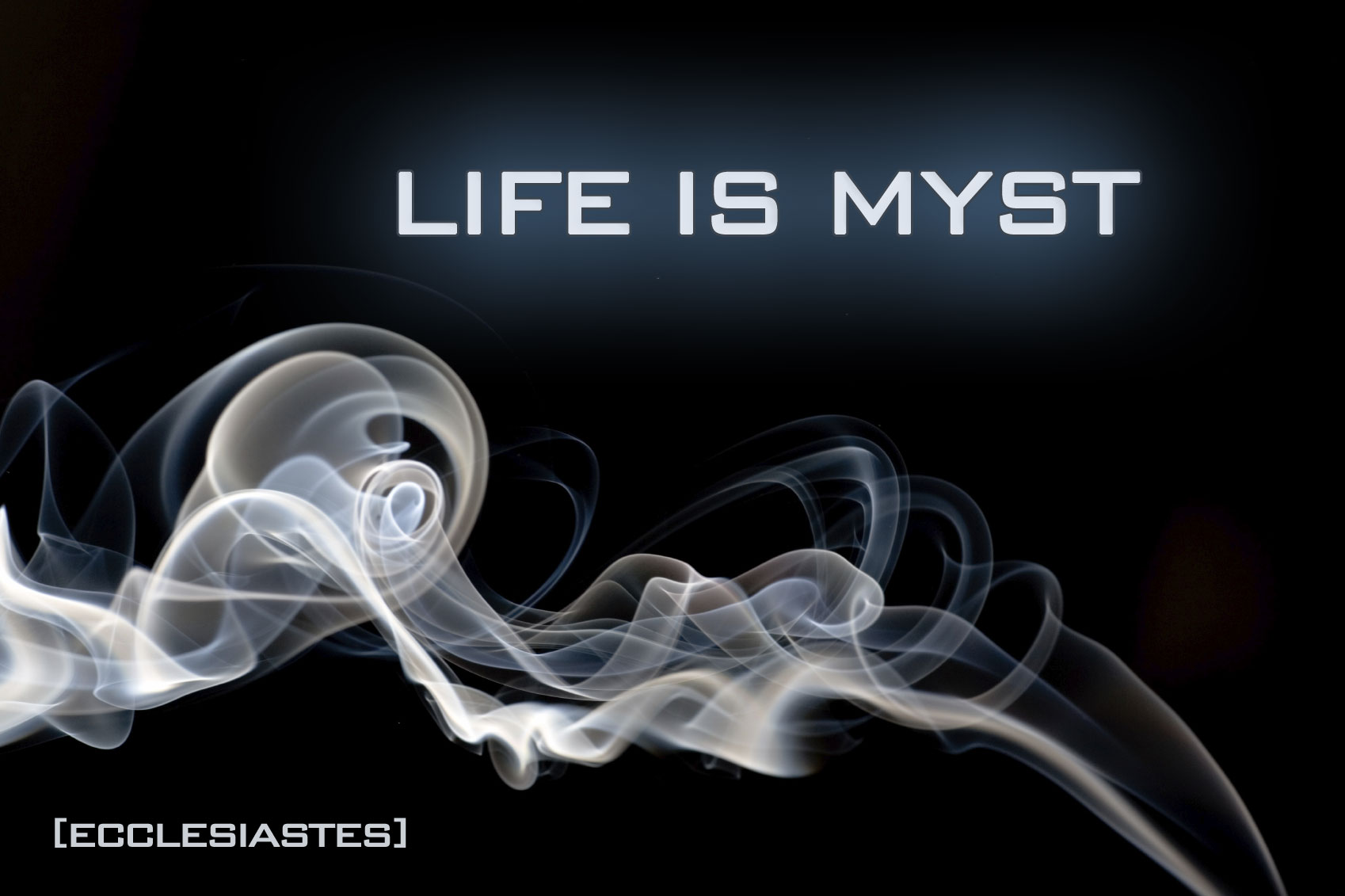Bible Experiment Ecclesiastes

Ecclesiastes Overview
The book of Ecclesiastes is a compilation of proverbs and sayings very similarly to the book of Proverbs minus one significant difference. Ecclesiastes is more autobiographical in nature and was written late King Solomon’s life. Solomon realized that he had an extraordinary number of screw ups in his own life. That he had missed it a number of times. And the book of Ecclesiastes was written in the hope of sparing others the same pain that he went through.
What were some of the lessons Solomon learned? And what should we learn from him and the book of Ecclesiastes? Well, that is the interesting bit. Solomon, one of the wealthiest guys who ever lived, who’s house backed right up to the temple realized that materialism was meaningless. Which is interesting, seeing as though that when Solomon asked for wisdom, God gave him wealth as well. Maybe God delivered wealth to him so that he could learn wisdom? Things that make you ponder a bit.
But if there was no meaning in materialism, then what was truly meaningful? The negative doesn’t prove the positive. What is the thing Solomon recommends instead? Well, he is quite clear on this point. The only search that is truly worth while in our short and fleeting lives is discovering truth by searching for God.
Ecclesiastes Chapter Walkthrough
“I set my mind to seek and explore by wisdom concerning all that has been done under heaven. It is a grievous task which God has given to the sons of men to be afflicted with” Ecc. 1:13
Right from the start of Ecclesiastes, in chapters 1 and 2, Solomon begins to walk us through the experiences of his life. He makes it very clear that all of his personal pursuits throughout the duration of his life was selfish pleasure and meant nothing eternally. “I have seen all the works which have been done under the sun, and behold, all is vanity and striving after the wind.” (1:14) He readily admits that in his pursuit for wisdom throughout his life he turned nothing down – every pleasure, every pursuit, and his conclusion? Everything was vanity. Vanity, and striving after the wind.
Then as Solomon moves into chapters three through five he wanders back to his Proverbs considerations and considers life and the meaning of wisdom. He considers wealth, and poverty. He thinks about the laborer and the rich man. He worries about the oppressed and the fact that it would be better that they never had been born. But the most impressive conclusion that Solomon posited was in 5:18-20:
“This is what I have observed to be good: that it is appropriate for a person to eat, to drink and to find satisfaction in their toilsome labor under the sun during the few days of life God has given them—for this is their lot. Moreover, when God gives someone wealth and possessions, and the ability to enjoy them, to accept their lot and be happy in their toil—this is a gift of God. They seldom reflect on the days of their life, because God keeps them occupied with gladness of heart.”
Which is really fascinating to me in that it doesn’t seem like it matters to God much one way or the other how rich a person is. Kind of reminds me of the recent post I made about @notch, and his unhappiness in spite of his enormous wealth. Solomon even went so far as to say laborers actually sleep better at night, content after a hard day’s work. But rich people do not sleep well because they have many worries. Which strikes me as true even today, thousands of years later.
Then in chapters six through eight we see Solomon explaining his advice about having a purposeful and long lasting life. At a certain point, I began to think that maybe Solomon needed a bit of a hug. Especially after this little gem at the beginning of chapter 6: “A man may have a hundred children and live many years; yet no matter how long he lives, if he cannot enjoy his prosperity and does not receive proper burial, I say that a stillborn child is better off than he.” I mean, really? I think I understand the larger point that he is making, that life is hard here on earth. That the struggles of life and our ability to control our outcome is tenuous at best.
And then in chapters nine through twelve, Solomon wraps up the book and makes certain that you didn’t miss the point he has been trying to make in both Proverbs and Ecclesiastes. Everyone dies. Everything everyone does is vanity and prideful without God. Our complete and utter obedience needs to be to God or else everything else we have done in this life is for nothing. Solomon reiterates this sentiment towards the end of Ecclesiastes – 12:13 “The conclusion, when all has been heard, is: Fear God and keep His commandments, because this applies to every person.”
Ecclesiastes Conclusion
I found Proverbs and Ecclesiastes to be meaningful and deeply profound in that it zeroes in and cuts through the tripe of life and calls a spade a spade. Everything is pompousness. Everything is striving. Everything is vanity. And it really is. I can’t think of another culture that this advice would be more appropriate for than our own. I think of work and that is striving, but I see it more in our propensity to stare out ourselves in the mirror of social media and I think Solomon has really hit the nail on the head. We are so determined to convince everyone around us that we have it all together. When Solomon, the most together guy on the planet, made it abundantly clear, no one has it all together. And even if you did have it together, its together for what end exactly?
No, Solomon just hit it out of the park. He sees us clearly, from across three thousand years – and has us pinned and wriggling to the wall. We really do want to convince everyone we have it all figured out, when its really quite obvious we don’t. We desperately don’t want to be found out to be the fraud that we are. We are striving to keep the balls in the air and keep them from all crashing down. But one day, no matter how clever, or how rich, or how smart… they will inevitably come down. And without a closer walk with God none of it matters – for that is the purpose we were all created for.



